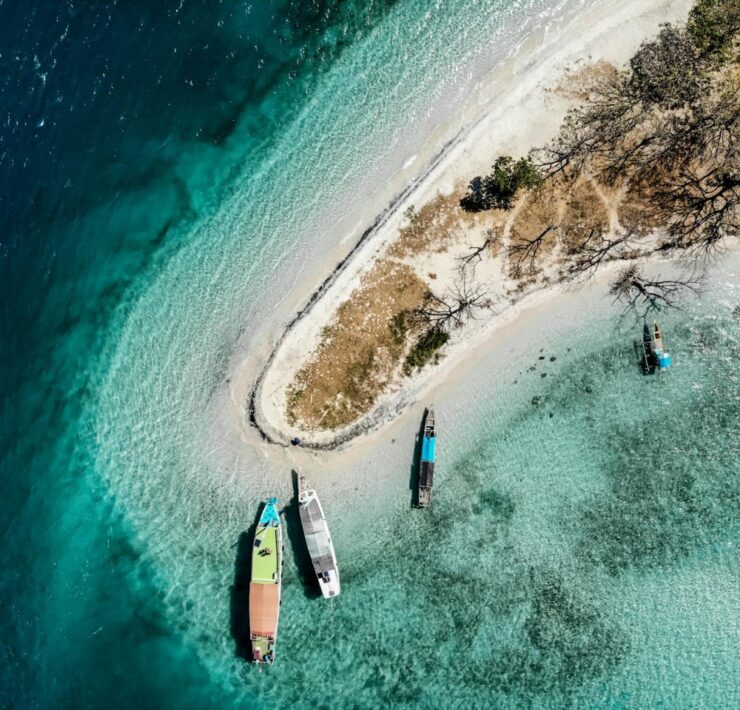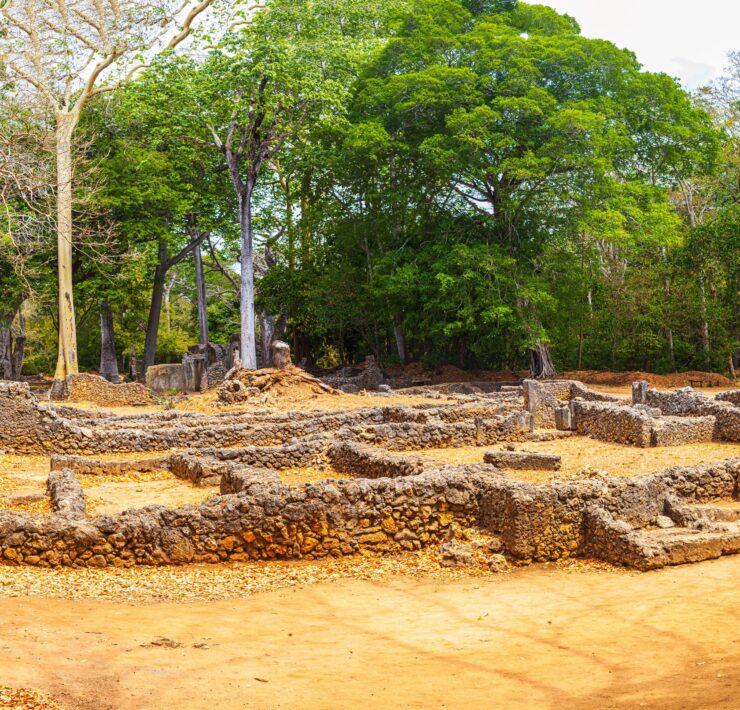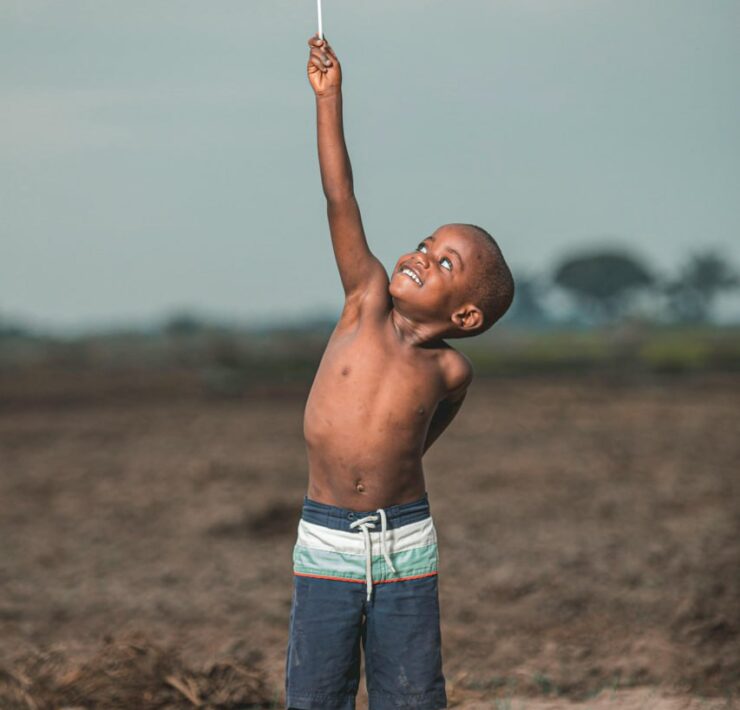
Lawrence Freeman is a Political-Economic Analyst for Africa, who has…
Read Next
 PIN IT
PIN ITThe African Energy Chamber (AEC) is preparing to take Western financiers to court over what the energy advocacy group’s chairman, NJ Ayuk, has described as their discrimination against financing African oil and gas investments.
August 22, 2024
Chairperson of the African Energy Chamber (AEC), NJ Ayuk denounced the discriminatory withholding of investment in fossil fuels by Western financial institutions as very unjust, hypocritical, and colonial.
Natural gas is treated as a fossil fuel in Africa, but it’s seen as green energy in Europe…It’s clear discrimination, it’s outrageous and it should not be happening. You can’t have one set of standards for the European and American energy industries and another for the African energy industry.
According to IntelliNews.com, the AEC aims to launch litigation proceedings against Western financial institutions in Western courts next year. Ayuk said he will seek help of some of the best law firms in the world,’ and the support of various African states. Read: Africans Sue Western Financiers Over Energy Discrimination
Ayuk said: “We want to end these very discriminatory lending practices towards Africa. This is financial apartheid in the name of climate change…We’re going to look at it as a human rights matter. We believe in the system of justice, that it will give us a fair hearing.
He added: There’s a whole new generation of Africans that are saying, we want to have the same standards of living that Europeans have. It’s important we create the opportunities and jobs right here at home, rather than Africans having to cross the Mediterranean to look for jobs in Europe.
African leaders have been rebelling against this transparent fraud of using “climate change” to prevent African nations from industrializing their economies and eliminating poverty. Ayuk and the AEC is now taking legal action against this blatant discrimination, this concerted effort, conspiracy if you will, to deprive nations that possess abundant hydrocarbon resources, from exploiting their own supplies of fossil fuels for the benefit of their citizens. The deliberate policy by the Western financial-political oligarchy to deprive African nations of vitally needed energy has been called, a new form of colonialism by Gwede Mantashe, in 2021, then Minister of Mineral Resources and Energy of South Africa
“South Africa deserves the opportunity to capitalize on its natural resources including oil and gas, as these resources have been proven to be game changers elsewhere. We consider the objections to these developments as apartheid and colonialism of a special type, masqueraded as a great interest for environmental protection. Read: Climate justice must include ending energy poverty

Energy Poverty Kills
Without doubt, the single biggest cause of death in Africa, is the pathetic paucity of available energy. This is not hyperbole! It is absolutely true.
Energy is the lifeblood of a nation. Without it, people will die, are dying cross the African continent. Nations need abundant and accessible energy in the form of electricity to survive and expand. Think about it. Electricity-power is needed in every facet of an economy and the daily lives of citizens. Electricity is needed for agriculture, medicine, hospitals, schools, irrigation, industry, every type of business, manufacturing of all consumer goods, necessary services, infrastructure, and to grow an economy with an improving standard of living. The very existence of human life, physically and spiritually, requires electricity. Electricity is necessary for families to maintain their homes, and for their children to have lighted rooms to read and learn.
Without adequate energy, African nations cannot power an industrialized economy. There is much talk about African nations adding value through manufacturing of their resources as opposed to allowing purely extraction. This will not occur unless there is a massive increase of energy throughput in their economies. Without achieving industrialization, and advanced agricultural and manufacturing sectors, African nations will never eliminate poverty and hunger. Energy, followed by modern transportation, are essential to create an infrastructure platform upon which an industrialized economy can grow.
Without energy to supply these needed goods and services, Africans are suffering extreme hardship, malnutrition, and death. The dearth of electricity leads to instability. For example, examine energy availability for the three Sahelian nations that have recently experienced coups.
Per capita consumption of electricity in Mali is 90 kilowatt hours (kWh), compared to 11,267kWh in the U.S. Only 53% of their population have access to electricity compared to 100% in the U.S. In Niger, per capita consumption is 150 kWh, with only 19% of Nigeriens having access. In Burkina Faso, per capita consumption is 87 kWh, and access is 21% of the population. These statistics speak volumes about the conditions of life in these nations, that characterize the dearth of energy in sub-Saharan Africa, which leads to instability.
W. Gyude Moore, of the Center for Global Development, wrote earlier this year about the consequence of energy deficiency in creating weak African states.
Africa’s energy poverty is now a national security crisis. The region’s large and growing population places relentless pressure on small and dwindling resources, exacerbating the crisis of diminished state capacity. The specter of social and political disruption haunts regional stability, from coastal West Africa to the Great Lakes. Africa’s poverty translates into weak economic resilience and heightened vulnerability to shocks – internal and external. Read: On the question of Africa’s Energy Poverty
I maintain that sufficient amounts of energy are an essential right of human existence, and perhaps the most fundamental of all human rights.

A Radical, But Sound Proposal
Most people will be shocked at what I am going to propose in the next sentence.
Plentiful affordable energy is so vital for economic growth, and human life, why doesn’t the West build energy plants for free? This is not socialism or communism, it is a sound policy, if one understands the principles of physical, not monetary, economics. Read: Physical economy creates wealth and elevates the-human mind.
At first, my audience may consider it astonishing that I am making this proposal. This is not equivalent of another handout of more aid, but actually the opposite. Add up the billions of dollars donated to African by U.S. Agency for International Development (USAID) to counter hunger, every year. Plus, factor in the dollar equivalent amount of contributions of other Western nations, and numerous agencies of the United Nations, every year. Now consider how much money is donated in response to security concerns, because nations lack stability, primarily the result of a hungry, poor, thus desperate population. New forms of assistance are continually initiated to deal with the ongoing economic crisis faced by underdeveloped nations, i.e., underdeveloped economies. In 2022, the United States provided over $54 billion in aid to African nations. USAID distributed $8 billion in assistance in 2022, to 47 sub Saharan African nations. Between 1970 to 1998, wealthy nations provided $2.6 trillion in assistance to Africa nations. Conservative estimates are that in the last two decades several trillions of US dollars have been donated to Africa.
By contrast, to build a 1,000 megawatt nuclear power plant in Africa will cost approximately $5 billion. Long term, fifteen year loans at 2-3 per cent interest could be used to finance vitally needed infrastructure projects across the continent. The advanced sector of Western nations has foolishly refused to provide this type of credit for construction of energy plants, high-speed railroads, water development projects, and more. However, in principle, the West could build these projects at no cost and would save trillions of dollars in aid donations. Gifting entire infrastructure projects is a sound economic investment that would raise the standard of living of hundreds of millions of Africans and profitable. The development of a manufacturing sector in African states would also create a market for the consumption of advanced capital goods from the West. From an industrial capitalist perspective, profits from the production of physical wealth would increase, while simultaneously improving the conditions of life for Africans. Wealth producing profits in this manner are morally and economically superior to monetarist profits from debt collection.

Green Energy-New Colonialism?
The history of Africa has been one of looting raw materials and enforced underdevelopment. Following 400 years of slavery, and a hundred years of colonialism, Africa, after the wave of liberation, has been subjected to control through the neo-colonial policy of the Western based financial-political oligarchy. Now the newly minted, so called rules-based international order, is using its political and financial power to deprive African nations of the right to develop their economies by exploiting their large hydro-carbon resources. The new green movement is being propagated to enforce underdevelopment in African nations under the guise of “saving the planet.” African nations are restricted from burning coal, gas, and oil, to provide desperately needed electricity for their citizens. According to this racist and colonial view, Africans must perish from a lack of electricity, for the planet to live. Read: “Climate Change” A Weapon to Prevent Industrialization of African Economies: Expect Push-Back at COP 27 in Egypt
In the late 1960’s, the world was invaded by the “rock-drug-sex counterculture,” which brought with it a resurgence of hysteria about population growth from the discredited ideology of Thomas Malthus.
Thomas Malthus, an employee of the imperialist British East India company, postulated in his 1798 thesis, An Essay on the Principle of Population, that human population growth must be curtailed. Without any evidence, he claimed that the planet would not be able to feed an expanding human population. His solution was not to foster technological advances in the mode of food production, but instead to kill off human beings. He advocated decreasing the rate of growth of the human race by creating conditions for poor people to die and not be able to reproduce. This theme of population reduction is constant throughout the ideology of the environmental movement. It undergirds their anti-scientific belief that the resources on the planet are fixed, and the continued expansion of the human species will destroy the earth. There is a hardcore satanic faction who insists that humankind is inherently evil, and if people are allowed to govern themselves, they will destroy our planet. Viciously denying that human beings, endowed with the principle of creativity, are in harmony with the developing universe.

In brief. The World Wildlife Fund (WWF) ,now the Worldwide Fund for Nature, the granddaddy of the environmental movement, was created with this Neo-Malthusian ideology. It was founded in 1961 by Sir Julian Huxley, President of the Eugenics Society of Great Britain, Prince Bernhard, a former card carrying member of the Nazi Party, and Prince Phillip, who represented the highest echelon of the British Oligarchy. The now deceased Philip was known for his fanatical antihuman view. He is quoted in 1988, In the event that I am reincarnated, I would like to return as a deadly virus to contribute something to solving overpopulation. Malthus would have been proud of him. In 1967, Prince Philip, Prince Bernhard, and Maurice Strong established the 1001 Club, to finance the operations of the World Wildlife Fund. This secretive club, of limited membership-1001-was comprised of the elite class of the world’s financial oligarchy, each contributing $10,000 to create a $10 million trust to bankroll the WWF. Continuing the British Empire’s racist-colonial mentality, in the footsteps of Cecil Rhodes, they viewed Africa as a source of raw material wealth, and the Africans as less than civilized. Hence their obsession with the African continent.
This Malthusian, anti-human prejudice permeated our culture with Paul Ehrlich’s 1968 book, The Population Bomb and the 1972 publication of Limits to Growth, from The Club of Rome. As a result of this propaganda, ensuing generations embraced this denigrated view of humankind as servants of a pristine nature, not as what we actually are: Prometheans who develop the universe. It was in this anti-human milieu that the attack on burning fossil fuels, civilization’s primary source of energy, was incubated, with the intent on reducing population growth through deindustrialization. For African nations, which are the least industrialized and suffer from the largest deficiency in energy production, it is a death sentence. Solar cells and wind turbines cannot power an industrialized economy. That is simply the truth. Fossil fuels, and hydro-electric power can function as a transition until society achieves a brighter future with an advanced nuclear energy based economy.
Subscribe now for updates from Msingi Afrika Magazine!
Receive notifications about new issues, products and offers.
What's Your Reaction?
 PIN IT
PIN ITLawrence Freeman is a Political-Economic Analyst for Africa, who has been involved in economic development policies for Africa for over 30 years. He is the creator of the blog: lawrencefreemanafricaandtheworld.com. Mr. Freeman’s stated personal mission is; to eliminate poverty and hunger in Africa by applying the scientific economic principles of Alexander Hamilton





















